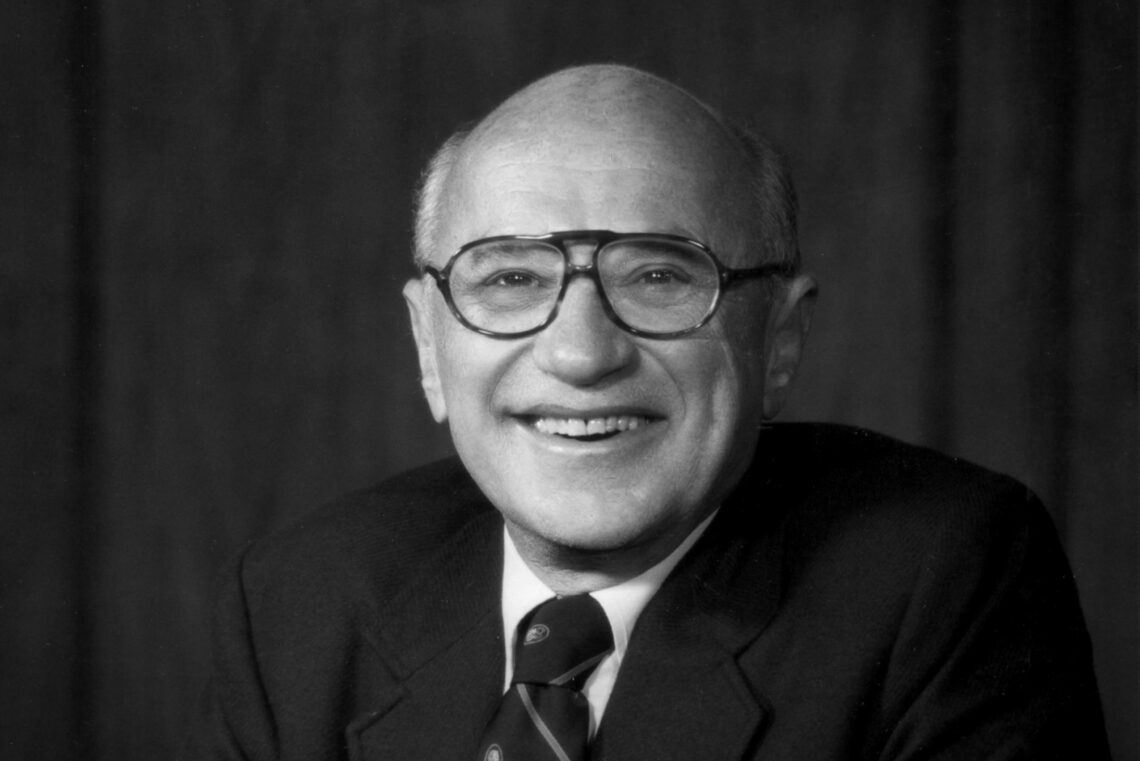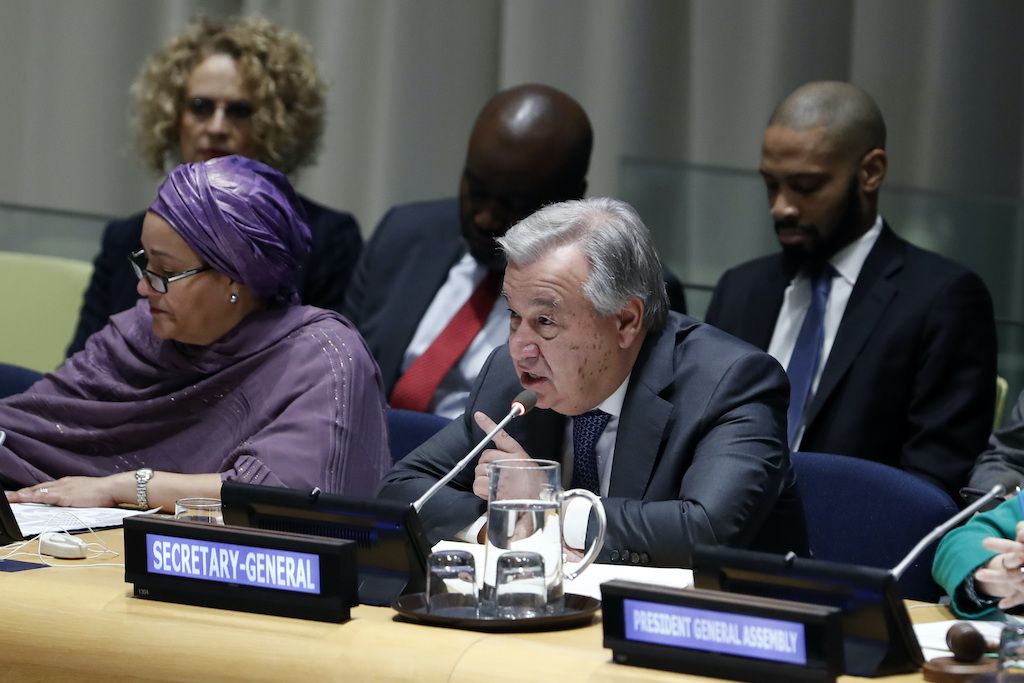The mysterious case of CEOs turning green
It is unusual when CEOs purport to define their companies’ overarching objectives. Things become even more curious when top managers team up with a bureaucracy to call for the imposition of tighter environmental standards on business.

In a nutshell
- CEOs talking of environmental “sustainability” in doing business cut suspect figures
- Paying lip service to political correctness does little harm
- Beware, however, of collusion between big business and the UN
A few weeks ago, the media reported that some 80 percent of the 1,000 chief executive officers (CEOs) surveyed by the United Nations Global Compact, a corporate sustainability group, and the professional services firm Accenture, want “better capitalism.” This phrase means that business leaders believe that companies should do more to guarantee sustainability and that this long-term choice is also the best way of ensuring a “prosperous world.” The source is authoritative and matches earlier statements arguing that “a company’s purpose is to serve more than just shareholders.”
Who sets goals
At first blush, these statements make little sense. A CEO’s duty has nothing to do with defining the company’s overarching objectives. This is the shareholders’ job. The owners tell their top managers whether their goal is to polish the green image of the company, go for profit maximization, or, say, pursue profit maximization and devote a share of the revenues to funding clean energy, charity, hunger relief or the preservation of artistic heritage.
As the very wording suggests, CEOs are executives/agents, that is, they operate to obtain goals defined by their principals (the shareholders). Thus, the big news is not what CEOs believe about the future purpose of their companies, but the very fact that these declarations did not raise an outcry. Let us briefly analyze the possible explanations.
The CEOs who took part in the UN-Accenture survey quoted no figures and made no commitments.
One account regards the possibility that nobody cares about what the CEOs say. From the owners’ perspective, paying lip service to political correctness does no harm and can actually improve a company’s image. After all, the name of the game is facts, not words. Besides, major shareholders can still fire the top managers when they fail to perform, regardless of what they say to the public. Minor shareholders do not even bother interacting with the senior managers they dislike. They walk away by selling their shares.
A second view is that public opinion tends not to trust CEOs. Although people care for sustainable development – whatever that means – and would like to see companies behave “responsibly,” a mere declaration of goodwill does not come across as persuasive. The CEOs who took part in the survey quoted no figures and made no commitments. They merely said that more cooperation and better communication would be highly desirable to create a greener world and that they would like to contribute to developing a deep-rooted culture of sustainability.
Possible agenda
A third option is that top managers are playing defense. They fear that more intense competition and slow growth in the world economy will lead to shrinking profits. Thus, they are actually sending out a profit warning. However, rather than acknowledging poor performance, they justify lower margins by arguing that costs have been driven up by their deliberate (and socially responsible) decision to pursue sustainable strategies. Indeed, the accounts will tell a different story, but this will be a problem for the future and a minority of the shareholders.
A final possibility would consider this survey report as a UN attempt to schmooze the world of business. It is widely known that the international body frequently wobbles on the verge of bankruptcy, partly because member countries fail to pay their fees, partly because expenditures are too high (and efficiency is not immune from criticism).

Thus, the report could be perceived as part of an effort to attract funds from large companies in exchange for a certificate of greenness, or perhaps a pat on the back. If this were true, public opinion would ignore the story. Although almost 60 percent of people rate the UN positively, frustration about its performance is high and nobody pays much attention to what the organization does or says, except for when disgraceful events occur (such as Venezuela winning a seat on the Human Rights Council, or the so-called Climategate 2.0).
Of course, these options are not mutually exclusive. For example, it is certainly possible that nobody cares about what CEOs are saying – because they are not credible and because words do no matter – and that a UN green label adds a veneer of political correctness to shady corporations. So, if these options exploited the full range of possibilities, the relatively little echo of the survey would be explained. Yet, we suggest that a fifth view is also possible and that it is, indeed, a better description of what is taking place behind the scenes.
The next step would be pressure to establish a specialized UN agency with operational and sanctioning powers.
Briefly put, the top managers made use of an apparently harmless survey to send out the following message: “We would like to engage in sustainable strategies, but we need help to fight against unfair competitors who might take advantage of our social and responsible commitment, scare our shareholders/employers and drive us out of the market by engaging in unsustainable activities.”
Unholy alliance
In other words, it could be that CEOs are actually pursuing two goals that might have far-reaching consequences. First, they are urging the authorities to enforce some regulation to enhance sustainability, a concept that the world of business would be happy to help define while lavishing funds in the process. In particular, the regulators will cooperate with the green CEOs and have global powers, lest unfair producers undercut the virtuous companies. This strategy explains the appeal to – and the involvement of – the United Nations. If our guess is correct, the next step would be pressure to establish a specialized UN agency with operational and sanctioning powers, entrusted with regulating and monitoring sustainable growth and business practices.
The bureaucrats will like the proposal for transparent reasons. And big business will also win, since the more intense the regulatory context, the greater the advantages of the large incumbent corporations, and the harder the life of newcomers, especially those located in developing countries. Moreover, CEOs could ask for subsidies or tax breaks to facilitate the transition toward sustainable strategies. These would usually be ruled out under the current WTO regime. Things would look different, however, if the plea benefited from adequate exposure and UN endorsement.
Let us now summarize our argument and draw some conclusions about what might await around the corner.
Shareholders are owners and those in charge of establishing what a company should pursue and within what limits.
The firm Accenture and the UN together put forth purported evidence that the world of business is willing to abandon unfettered capitalism in favor of sustainable business models. Although one may wonder whether unfettered capitalism fits today’s hyperregulation and also whether CEOs have the legitimacy to decide companies’ goals and strategies, the announcement made headlines for less than a week. This is good news. Shareholders are owners and those in charge of establishing what a company should pursue and within what limits. Hence, they are right in ignoring the personal social preferences of their top managers.
Cookie jar
The bad news is that public opinion is perhaps barking up the wrong tree. It fails to see that further restrictions on competition, subsidies at the taxpayers’ expense and creeping cartelization could be in sight – this time in the name of green sustainability and with the blessing of major international bodies.
If this happened (which is not unlikely), two significant consequences would follow. Developing economies – including China – would find it harder to meet the new standards. Their growth prospects would be threatened and many Western companies that decided to relocate part of their production facilities in low-cost countries would face trouble. This would be unfair – and sustainability is not an acceptable excuse. It would also feed geopolitical tensions.
More generally, restricting competition and discouraging new competitors stifle innovation and entrepreneurial efforts. The outcome is slower growth for the planet. If that happened, we would also witness renewed tensions within the advanced countries, and possibly a new wave of reckless regulatory and monetary policies. Far from being a source of complacency, the CEOs’ newly found openness to a green and sustainable future is a red flag for those who can read between the lines.







